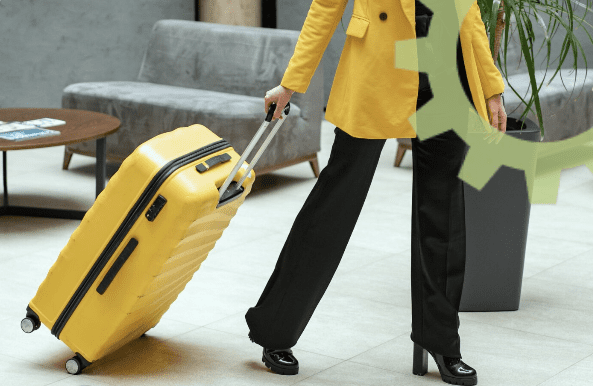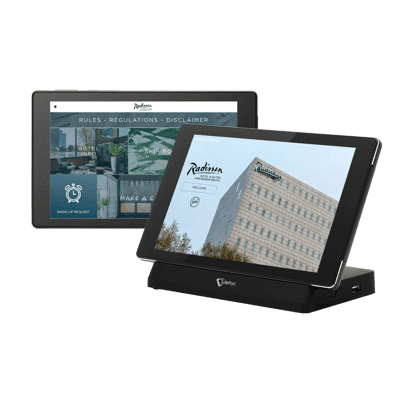Around the world, consumers are becoming more and more reliant on self-service, leveraging their own smartphone to take care of everything from bank errands to order food. Thus far, the hotel industry has been slow to adopt mobile technology, but the Covid-19 pandemic has become a driving force in the digital transformation.
“The pandemic has been a fundamental turning point when it comes to digitizing the hospitality industry. What we’re seeing is the relatively old and conservative industry changing and that change has accelerated much more in the past 12 months than it did in the previous 36 months.” Even Frydenberg, Zaplox CEO.
The mobile journey is transforming the way guests navigate their travel experiences. Modern travelers have shifted away from the traditional, legacy models to demonstrate a decided preference for the convenience and frictionless nature of the mobile experience.
A mobile guest journey is no longer perceived as a supplemental or optional experience — it is the experience. Hoteliers are investing in mobile technology to respond to what guests demand.
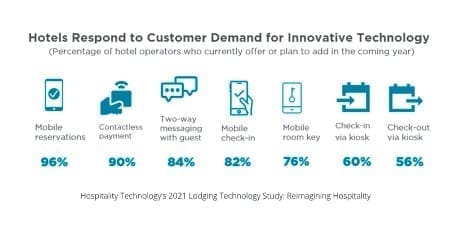
As the Hospitality Technology’s 2021 Lodging Technology Study: Reimagining Hospitality explains, now more than ever, guests are requesting contactless experiences and hotels are implementing or planning to implement contactless features to meet these requirements.
Data from Exploding Topics, a company that analyzes search data, also shows how the interest for contactless check-in has exploded since pandemic started in 2020.
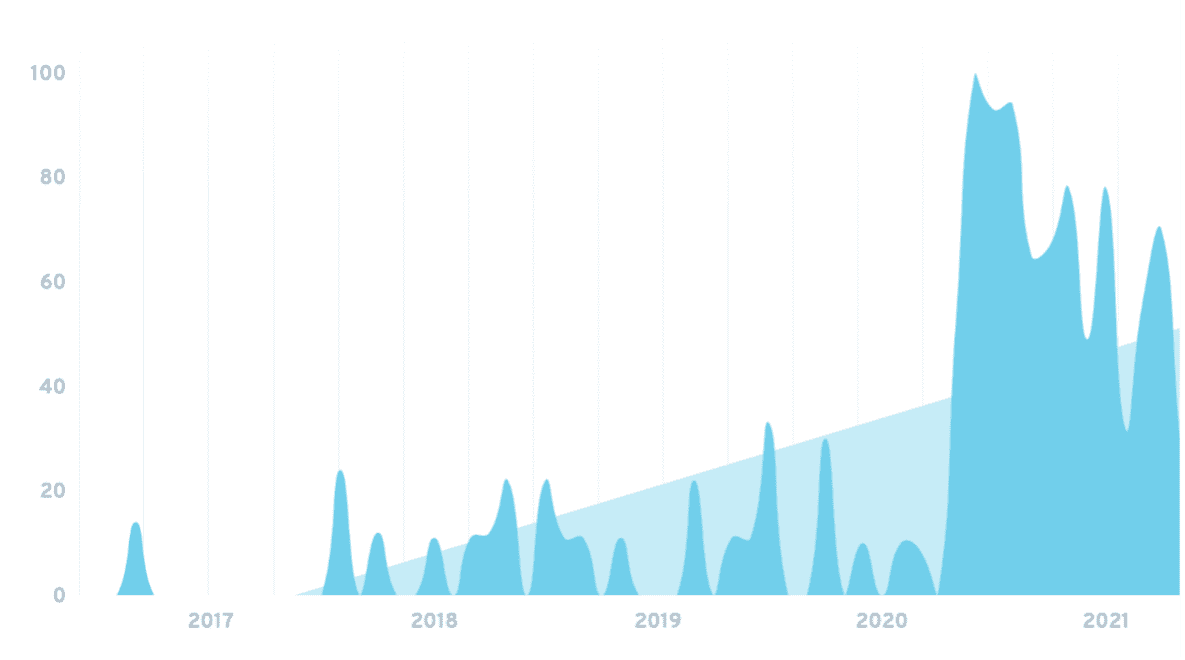
Of course, the effective utilization of mobile technology cannot occur without first understanding the mobile journey at its core. Much like you can’t expect to be a great basketball player if you’ve never played the game, hoteliers cannot expect to provide an exceptional mobile guest experience if they haven’t taken the time to understand it first or don’t know what type of experience their guests want. And if the traditional service journey was relatively linear, the mobile journey is anything but. The mobile guest journey creates new guest touchpoints that require hoteliers to learn how to engage effectively – throughout the entire guest journey.
The 5 steps of a mobile guest experience
The mobile guest journey improves the traditional service model, creating a more personalized and seamless guest experience with more opportunities to connect and create a truly memorable stay, through a mobile guest app that is integrated with the hotel’s property management system. Let’s start with understanding what happens in each step of the mobile guest journey.
 Pre-stay
Pre-stay
By using a mobile guest app, hotels can curate more personalized relationships with their guests before they even arrive at the property. Via the app, hoteliers can connect with the guests via customized messages, reminders, push notifications and chat communication.
- Direct-bookings via the app. Guests who already have the hotel’s guest app on their smartphone, can be incentivized to use the app to make future bookings, consequently contributing to more direct bookings and better profits for the hotel.
- Keep guests in the loop for smooth arrival. The app can be used to communicate important pre-arrival messages about the hotel’s safety protocols, pre-screenings, and other practical details that contribute to a smoother arrival.
- Upsell add-on services and special packages. The app can be leveraged to upsell add-on services and special packages that can be added to the reservation, contributing to the hotel’s bottom line while making the stay more enjoyable for the guest.
Arrival day; Check-in
By enabling guests to use their phone to manage their reservation, check-in, and unlock the hotel room door, guests are empowered and can control their own on-property experience and decide how much they want to interact with the hotel staff and other guests. Checking-in to the hotel becomes hassle-free and convenient, allowing each guest to focus on other more important aspects of their stay. With a native app that has check-in and keyless entry features built-in, guests can bypass the lines at the front desk and immediately enjoy the hotel property and their room, entirely on their terms.
- Contact-free mobile check-in. Mobile check-in has become a “must-have” as guests demand contact-free solutions. Guests no longer have to stop at the front desk, but can use their phone to access the reservation and check-in before they even arrive at the hotel.
- Alert the guest when the room has been cleaned. Once a room is marked as ready, the room number immediately becomes available and is linked to a reservation. The guest is alerted via the hotel app and he or she can avoid waiting in the lobby and can instead go straight to the room.
- Guest registration and special requests. During the mobile check-in process, guests are prompted to confirm their guest details and pre-authorize the payment if required by the hotel. Special requests such as late checkout, food and beverages orders, and requests for extra amenities can also be communicated via the mobile app.
- Mobile key, no need to handle plastic key cards. The mobile key becomes available in the app as soon as the check-in is completed. Guests unlock the door by holding the phone against the electronic door lock. The mobile key can easily be shared electronically with other guests of the same party.
During stay: On-property targeted communications and offers
Reports show that guests are more likely to engage and act upon hotel upsell opportunities and upgrades without the presumed pressure of the hotel staff. Guests feel empowered to ‘choose their experience’ when given the opportunity to make purchases or upgrades through their mobile device. According to Hotel online, there’s an 18% increase in room service orders when made via a mobile device and guests typically spend 20% more when ordering via mobile (Taxi2Airport).
- Dinner reservations and spa appointments. Guests can use the app to schedule spa or gym appointments and make dinner reservations. They can also use the chat to decline cleaning of the room.
- Get access to other hotel facilities with the mobile key. The mobile key is used to unlock the room throughout the stay, but it can also be used to access other hotel facilities such as the gym, pool or business center.
- Spend less money on printed materials. The app provides easy access to information about the hotel amenities, restaurants, and things to do in the surrounding area. By providing a digital compendium, hotels can significantly reduce the number of calls to the front desk and lower the cost for printed materials.
- Resolve issues quickly via chat. The use of chat communication is another way to maintain the high quality, personalized service that guests expect while at the same time minimize in-person contact between staff and guests. Service requests can quickly be resolved by contacting the staff via the app’s chat function.
Departure day
Guests no longer need to stop at the front desk to return the keys and pay when they check out from their room. Instead, the app reminds the guest when it is time to check out and the guest can use the app to check out and pay.
- Review of room charges. Prior to checking out, the guest can review the folio and all the charges directly in the app.
- Mobile Payment & Checkout. After reviewing the folio, the guest can use the app to finalize the payment of the room and the other charges. Once checked out, the mobile key is deactivated and the room is marked as “dirty” in the PMS.
- Departure Services. The guest can use the app to request bell service or arrange for transportation to the airport.
- Receipt sent to the email. The guests receive their invoice directly in their email, avoiding the annoying moment when the guest forgets to ask for his invoice in front desk.
Post-stay
The guest experience does not end when the guest leaves your property — after all, online reviews and feedback can make or break a hotel’s success in the modern age. With the right technology in place, hoteliers can extend their guest courtship efforts beyond the guest’s stay with personalized post-stay communications, surveys and relevant offers that drive loyalty and future direct bookings.
- Connect with guest after they leave. A mobile guest app helps hoteliers to improve the post-stay engagement with their guests, including distribution of guest surveys and relevant offers to make sure their hotel stay is top of mind for future bookings.
- Promotions and direct bookings. Hoteliers can use the app to communicate special offers and customers can book their next stay directly in the app.
The mobile experience is imperative in the eyes of the modern guest, which means an integrated, mobile-optimized solution should be at the forefront of every hotel’s strategy. With the inclusion of mobile technology, hotels can receive a sought-after, modern facelift across all aspects of the guest journey – from pre-arrival and on-property to post-stay.
No matter how big or small your hotel business is—at the end of the day, we’re all just human beings interacting with other human beings. Each touchpoint of a guest’s journey is an opportunity to connect with your guests to transform their stay from only an accommodation, to an experience. By investing in mobile technology for every step of the guest journey and having a holistic, personalized approach, you can ensure that guests will continuously invest back in your hotel.
Download The mobile guest journey guide to learn more about the contactless guest experience.


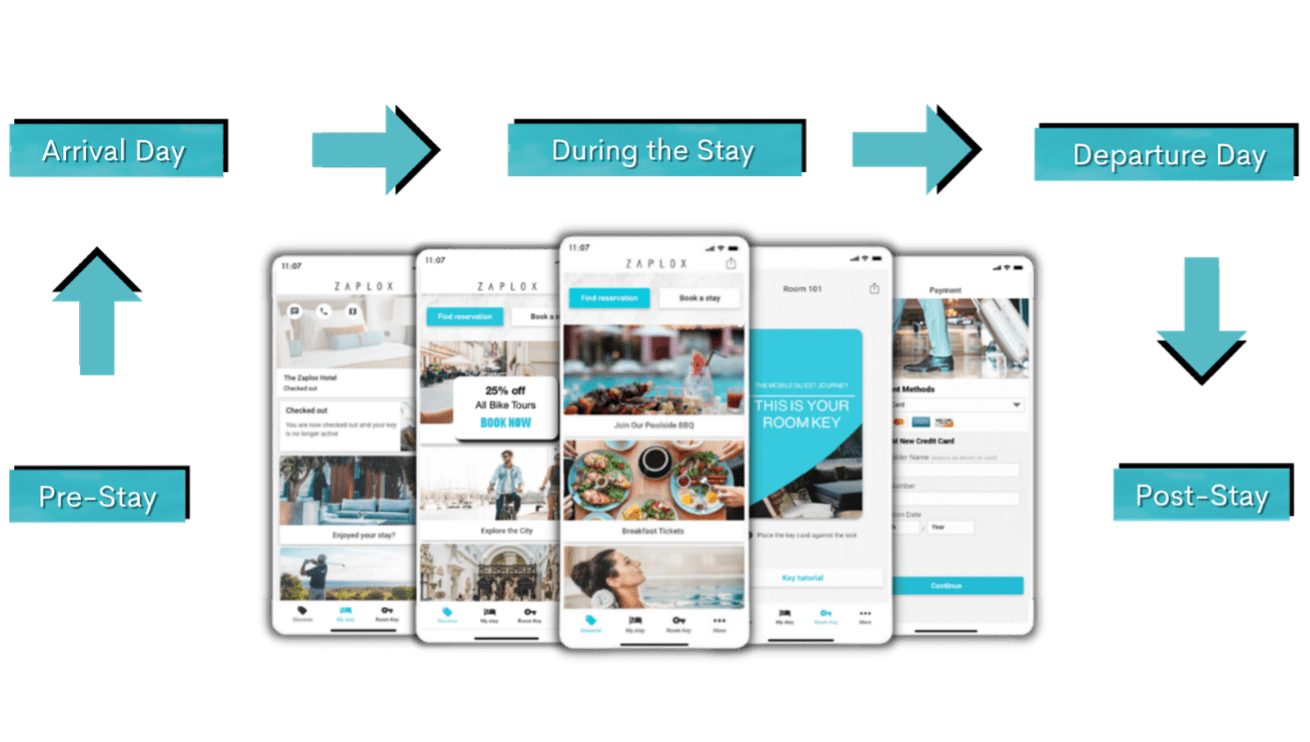 Pre-stay
Pre-stay